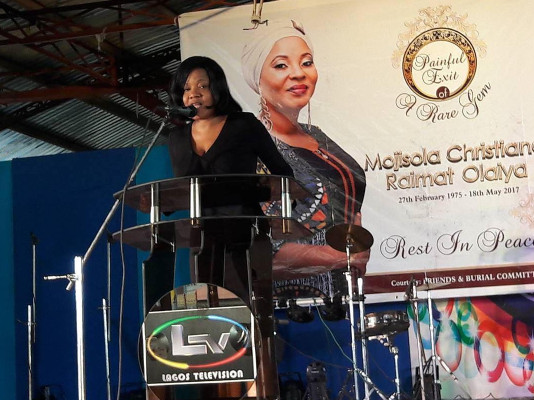
When you are planning a funeral for a lost loved one, or when you are pre-planning your own funeral, there are dozens of decisions to be made. If it’s someone else’s funeral, you are likely making many of these decisions under duress, while grieving the death of a friend or family member. However, learning how to choose a funeral speaker can help you later in life when you might be asked to plan another funeral.
Delivering eulogies for a friend or relative isn’t easy, so the people you choose should be emotionally and physically able to do so. However, before we get into what that exactly means, there are other things to consider.

Who Can Speak At A Funeral?
In most funerals, family members, clergy, or friends are chosen to be funeral speakers who can speak at a funeral dramatically depends on the family’s decision, as well as religion and the type of funeral service. For example, only clergy delivers eulogies during some religious funerals. However, in other religious funerals family members often get the opportunity to speak.
As writing and delivering a eulogy is a very emotional experience, it is essential to check with the possible speakers before the funeral. For some, it might be too overwhelming. Talk to possible funeral speakers ahead of time, this way you can have a second plan in the case people decline your offer.
How Many Funeral Speakers Should You Have?
Not too long ago, it was common to have one person give the eulogy. However, in recent years, it has become common to have multiple speakers at a funeral. This allows for various perspectives on how they believe the person touched the lives of others.
However, too many speakers can cause the service to last much too long, and the stories about the lost loved one will fall on deaf ears of weary well-wishers. Some friends might want to share a story about the deceased that they believe the audience would enjoy, but most likely, there are just too many stories to share.
Aim for 15-minutes worth of stories to be shared by speakers at a funeral, which could be split by a couple of speakers, or even three speakers. If it’s difficult to pare down how many speakers want to say something, then maybe it’s smart to choose one person to deliver the whole eulogy.
Funeral Speaker Roles
Since there are different speaking roles within a funeral, it is essential to have someone appointed to each role. Assigning funeral speaking roles will help with the organization of the service, this way everyone is ready for his or her function.
Ceremony Leader
Usually, there’s one person who oversees the ceremony. In many cases, the ceremony leader role goes to the Funeral Director or a member of the clergy. The ceremony leader is responsible for starting and finishing the service. In many cases, they’re also responsible for performing all official duties of the ceremony.

Eulogist
The person who will write a eulogy and deliver a speech is perhaps the most important funeral speaker. In most cases, it is someone who knew the deceased very well and can share thoughtful memories and stories. The eulogist is usually a family member or close friend. When the officiant is a priest, minister, or other professional, they would be responsible for delivering the eulogy.
Readers
Many funeral services include readings from sacred texts. The clergy or the ceremony leader can read these, as well as family members or guests. This is an opportunity to involve others in the memorial service; it helps those who don’t feel prepared to deliver a eulogy participate in the ceremony. If you choose to have guest readers, take the time to show them the verses they will be reading. This way they will feel more comfortable.

Open Microphone
Having an open microphone gives other guests and family members the opportunity to share some words. The final words section should be more spontaneous. However, let guests know there are some guidelines to respect and time limits to ensure the service goes as planned. The ceremony leader should be the one to set time limits and organize open microphone speakers.
Choosing The Right Funeral
Speakers
Hopefully, you can select a family member to share points that affected the family. Then a close friend, who can talk about how that person touched the lives of friends.
Usually, the people speaking at a funeral are funeral conductors, clergy members, relatives, and close friends. Among those that don’t do this professionally (unlike the funeral conductors and clergy), who will be able to rise to the occasion to speak at such an emotional time, while also making poignant comments?
Also, remember that whoever you choose still must agree to be a speaker at the funeral. It’s possible that, while it’s a great privilege, they prefer to take part as an audience member, rather than a speaker.
Make sure it’s someone that won’t offend the listeners or one that might become too emotional to talk. You want someone that can convey a thoughtful message and share good memories of the lost loved one that will touch the hearts of the listeners.
Source:www.thegardens.com

Leave a Reply